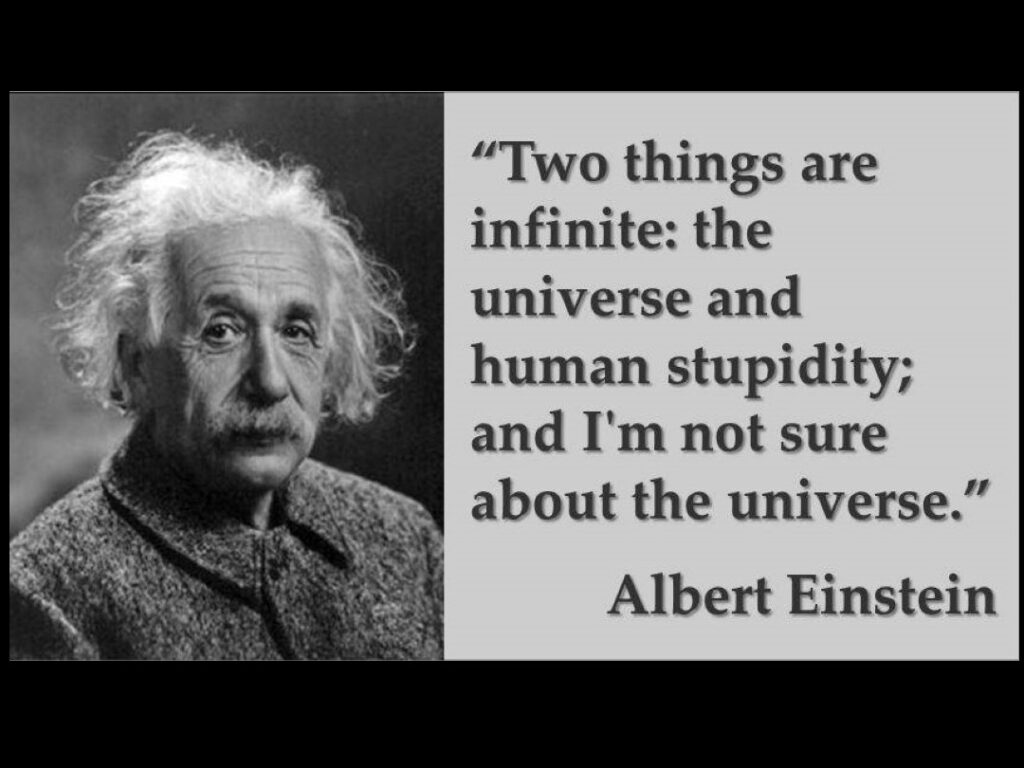Two things are infinite: the universe and human stupidity; and I’m not sure about the universe. Albert Einstein

Albert Einstein: A Summary
Early Life and Education
Albert Einstein was born on March 14, 1879, in Ulm, Germany. From a young age, he showed a deep curiosity for the natural world and excelled in mathematics and physics. Despite struggling with traditional schooling methods, his independent thinking laid the groundwork for his revolutionary ideas. He later studied at the Swiss Federal Polytechnic in Zurich, where he earned his teaching diploma in physics and mathematics.
Timeless Scientific Breakthroughs
Einstein’s most groundbreaking contributions came in the early 20th century. In 1905, often called his “miracle year,” he published four influential papers. These included the special theory of relativity, which introduced the famous equation E=mc², linking mass and energy. In 1915, he presented the general theory of relativity, which redefined gravity as the warping of space-time by mass. His theories fundamentally changed modern physics and paved the way for technologies like GPS and advancements in cosmology.
Later Life and Humanitarian Work
Einstein fled Nazi Germany in 1933 and settled in the United States, where he took a position at the Institute for Advanced Study in Princeton, New Jersey. A committed pacifist and advocate for civil rights, Einstein used his fame to speak out on global issues. Despite signing a letter to President Roosevelt urging the development of atomic weapons during World War II, he later became a passionate advocate for nuclear disarmament.
Legacy and Cultural Impact
Einstein became more than a physicist—he was a cultural icon. His unkempt hair, gentle humor, and philosophical insights made him a symbol of genius. He received the Nobel Prize in Physics in 1921 for his explanation of the photoelectric effect, a key step in quantum theory. Einstein died in 1955, but his legacy endures through his scientific contributions, his writings on ethics and politics, and his enduring image as the quintessential thinker.
Conclusion
Albert Einstein transformed our understanding of the universe. His scientific theories reshaped physics, while his moral voice influenced 20th-century politics and culture. He remains one of history’s most brilliant and beloved minds.
Two things are infinite: the universe and human stupidity; and I’m not sure about the universe.
Albert Einstein
References:
Albert Einstein – Biographical (NobelPrize.org)
Einstein’s Theory of Relativity Explained (Wired.com)
A Century of Einstein – Wired Magazine
Albert Einstein and the Birth of the International Rescue Committee (Rescue.org)
Albert Einstein’s Legacy as a Refugee (Rescue.org)
Einstein’s 70th Birthday and His Humanitarian Legacy (Time.com)
Relativity: The Special and the General Theory – Wikipedia
The Meaning of Relativity – Wikipedia


